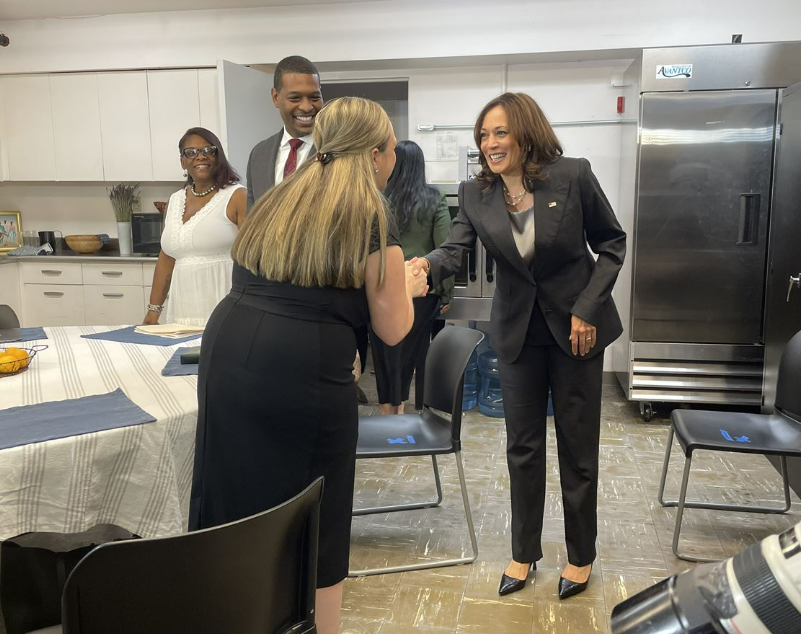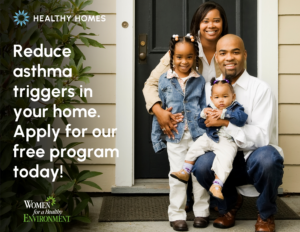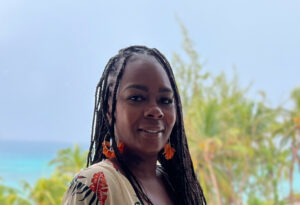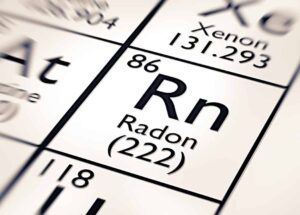On Friday, June 17, 2022, Vice President Kamala Harris reaffirmed the Biden Administration’s commitment to improving infrastructure by visiting with Pittsburgh leaders, announcing it will distribute $15 billion from the 2021 infrastructure plan to support the replacement of lead service lines across the U.S. The Secretary of Housing and Urban Development, Marcia Fudge, also announced an added $520 million in funding that will be allocated to improving environmental health in homes, including lead remediation.
Vice President Harris also spent the day meeting with elected officials and community leaders at the Community Empowerment Association in Homewood to hear the stories of Pittsburghers facing the impact of lead poisoning. Ms. Harris met with three Pittsburghers – two residents affected by lead in paint and pipes, City Clerk Kim Clark-Baskin, and early learning provider Gwendolyn Marcus, as well as WHE’s own Healthy Homes Program Manager, Hanna Beightley – to discuss what this proposal meant for the Pittsburgh community and others affected by the impacts of lead across the country. Ava Roberts, WHE’s Summer Communications and Policy Intern, sat down with Hanna to discuss what this opportunity to highlight the stories and needs of southwestern Pennsylvanians meant for her. *Content has been edited for length.
Ava: Thanks so much for meeting with me today, Hanna! Could you tell me a little bit about your background and what got you into the position as WHE’s Healthy Homes Program Manager?
Hanna: I was finishing up my master’s in Public Health at the University of Pittsburgh in 2019 and doing outreach for the lead-based remediation program with the Allegheny County Health Department in the fall of my last year of school. I then applied and got accepted to coordinate a countywide lead coalition at Women for a Healthy Environment. It was [originally] a six-month temporary grant funded position, which allowed me to learn about lead’s health impacts, work on convening the health department and other agencies, and setting up a structure for the coalition, identifying a mission, and vision goals build lead primary prevention efforts. As this grant money was running out, I was fortunate to transition then into the Healthy Homes Coordinator Role, [where] I kept doing lead education and primary prevention work in the context of building healthy homes; this includes focusing work on asthma, air quality, and green cleaning and personal care products, as well as doing outreach and community-based programming. In the last few years, we’ve also been able to bring on community health workers and we’ve expanded our home-based environmental health visits called Healthy Homes Assessments, and we’ve also continued doing our environmental-justice focused work.
Ava: I see you have a plethora of experiences that I’m sure prepared you well for when you had the opportunity to meet with VP Harris and members of the administration last week. You were even in the picture the Vice President tweeted yesterday morning! Can you speak as to what that experience meant to you?
Hanna: It was a once in a lifetime opportunity. I feel really honored to have been there [as a healthy homes advocate] and representing Women for a Healthy Environment’s work on primary prevention and healthy homes that has been increasingly recognized in the last few years. It is exciting that Pittsburgh is currently being highlighted for its commitment to lead remediation and programming. Namely, we’re being recognized for the passage of the Pittsburgh Lead Safety Law as well as a general commitment to primary prevention and education surrounding lead poisoning. It also feels great to be able to see coordinated [policy] efforts, now, around [lead] primary prevention.
Ava: I’m sure that felt like an incredible way to highlight your work, having the Vice President come say, “Hey, your city’s doing a great job!” and you’re directly part of that.
Hanna: Right, and even though we’re not the City or County government that facilitates some of these amazing remediation programs, it felt great to be an organization that really focuses on getting families connected to these programs.
Ava: So, in that round-table conversation between you, two other Pittsburgh residents, the Vice President, Secretary of HUD and EPA Administrator, what did you talk about?
Hanna: Primarily, the conversation was centered around how we can use the federal funding that is available to raise awareness of lead as a public health issue through working with other organizations, community resources and social media, and how we do that in a way that is equitable; that included highlighting our [the County’s] Lead Safe Homes Program; the replacement of the PWSA lead service lines and other water authorities that have pursued some of that funding to do lead service line replacements as well. We also had the opportunity to highlight the work within our organization– about our 1000 Hours a Year Program, for example, where we work on lead and radon testing and remediation in schools and early learning centers. Gwen Marcus from Project Destiny [one of the other residents at the round table] had gone through that program, so she could speak to her personal experience of running a childcare center and how that program was able to address lead hazards specifically.
Ava: What impact do you predict this newly announced $15 billion from the infrastructure plan and the other $520 million in granting from HUD will have on the ground here in our region?
Hanna: An amazing impact. Right now, we are doing the work on a smaller scale, so it will be exciting to see funding [assist] in communities within Allegheny County, the City of Pittsburgh, our neighboring counties and the Southwestern Pennsylvania region on a much larger scale. Cities are all dealing with this aging infrastructure and its related environmental injustices and putting resources into communities that will benefit most; so not only will we see more safe and affordable housing here in the City of Pittsburgh and Allegheny County, but we will now hopefully see that across Southwestern Pennsylvania and the state too.
Ava: Absolutely, so cool! So how does this funding impact your specific day-to-day here at Women for a Healthy Environment?
Hanna: Seeing this big amount of money being available is really going to be helpful providing people with the resources they need – that not only address the environmental concerns in their home, but will also help supply safe, affordable, and equitable places to live; clean water to drink; and clean air to breathe. It’s a [great] opportunity to have a lot more resources that we can get families connected to.
Ava: Sounds like an amazing opportunity for us to get resources to the people who need them. Switching gears, though – how did it feel to be in room full of advocates, women advocates, no doubt, talking to the Vice President of the United States, from an equity perspective? And what added value do you think that brought to the conversation you had?
Hanna: This was really impactful because this group of residents helped provide personal, emotional perspectives on how lead has real impacts on families and children every day, and this is important because work on this topic can sometimes seem impersonal. And being a woman from southwestern Pennsylvania who is in the environmental space advocating for environmental justice, it was important to highlight some of the equity and race-related pieces of the fight for environmental justice – where Black and Brown communities face disproportionately high instances of lead poisoning, specifically, and environmental hazards in general. And I don’t ever want to be the one speaking on behalf of those communities’ experiences, so it was great to supply the space for [women of color] to do that. So, bringing this group of three women, two women of color, to speak together about these important public health issues really means that our experiences and knowledge and expertisse really matters – and they [the Administration] really took that seriously. It was a very empowering experience.
Ava: That makes me a little emotional thinking about how far we’ve come, I think in this space, especially, and that people in community environmental health organizations are getting their valuable work highlighted. What do you think this federal funding says about the Biden Administration’s general willingness to elevate community concerns?
Hanna: I think it shows an incredible commitment to not only environmental work and environmental issues and public health issues, but also the investment in our communities. I don’t think we’ve ever seen any type of commitment like that from a federal administration. Housing is health – and we really must invest in safe and affordable housing, as well as a healthy environment, and this is maybe one of the first times we’ve seen [a Presidential Administration] is taking a holistic approach to health including all social determinants of health.
Ava: And I think that says something about this Administration’s efforts despite them being faced with new complex policy issues to handle. This is a more existential question – how do you feel about the future of community public health work?
Hanna: For many years, we were really trying to convince people that environmental health and lead poisoning and air quality were things that we should be concerned about, and it felt like we were talking to a wall at times. I feel like this is a monumental time where not only do we have buy-in that this is a public health issue, but we also have the investment and commitment to do something about it. If you asked me that same question three or five years ago, I wouldn’t have been so hopeful about being able to address lead in homes and drinking water and general habitability concerns – but now I’m excited because I feel like we’re at a place where we’re going to have the funding necessary to create safe and healthy environments for families.
Ava: This is amazing, thanks for meeting with me and sharing your thoughts about this special experience. Do you have anything else you want to share?
Hanna: I think it’s important to share Vice President Harris left the room saying “[k]eep doing the good work. You guys on the ground are how we get stuff done and how we make change.” It was a very inspiring end to our conversation.





